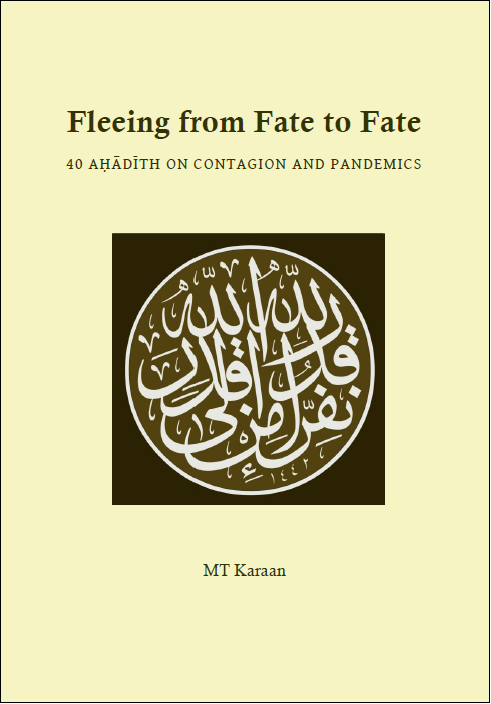Fleeing from Fate to Fate

40 AḤĀDĪTH ON CONTAGION AND PANDEMICS
The idea of collecting a number of aḥādīth on contagion, pandemics and related matters was born just as the second wave of Covid-19 infections began rising in South Africa. A medical professional requested texts from the seminal sources of Islam that would counter a narrative in which religion was being pitted as inexorably anti-science. What began as a handful of ḥadīth texts grew into a collection of 40 aḥādīth on adopting preventative measures during pandemics – in line with the time-honoured arbaʿīn format of the Muḥaddithīn.



